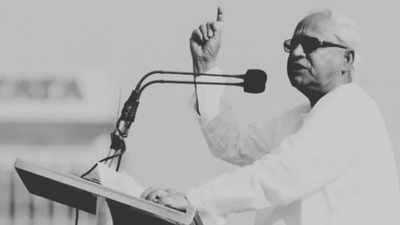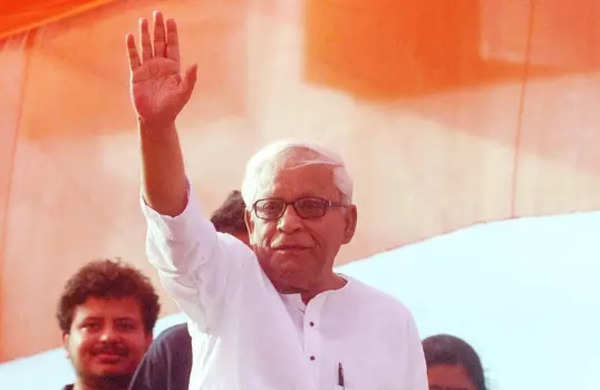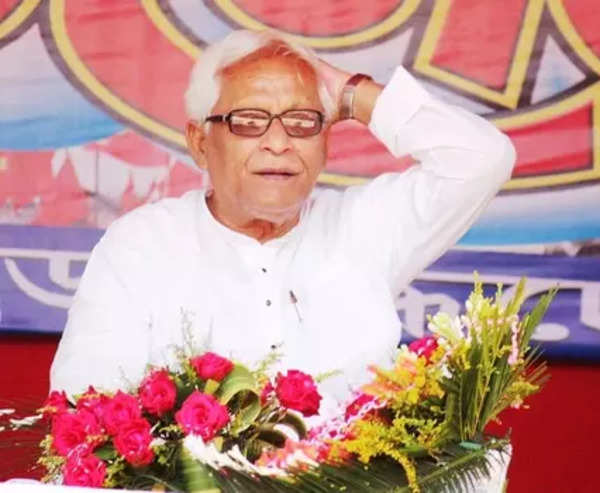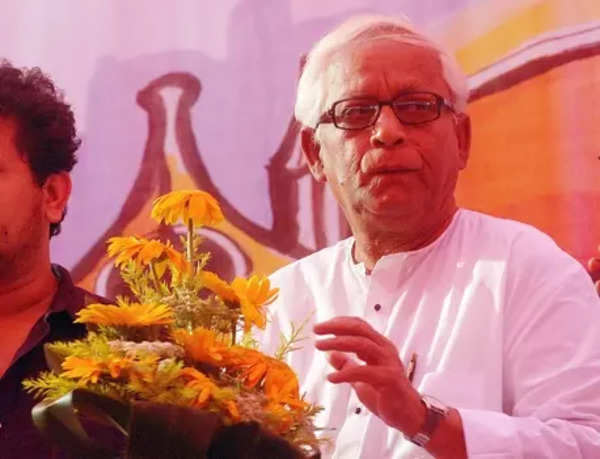[ad_1]

NEW DELHI: Former West Bengal chief minister Buddhadeb Bhattacharjee, a Marxist chief, handed away at his Kolkata dwelling on Thursday on the age of 80.
Famend for his pragmatic strategy, Bhattacharjee put aside ideological convictions to advertise industrialisation in his state however may also be remembered for witnessing the tip of the 34-year-old Left Entrance regime in West Bengal in 2011.

Bhattacharjee actively sought to revitalize Bengal’s financial system by attracting buyers and large capital to arrange industries, aiming to generate employment alternatives for the youth.
Consequently, he pushed arduous to alter his get together’s anti-industry picture. Regardless of being a member of the CPI(M)’s highly effective Politburo he publicly criticized the politics of ‘bandh’ or strikes, historically utilized by Left events to protest varied points.

His stance drew each reward and criticism, each inside and out of doors his get together.
The ambition for fast industrialisation grew to become his and the CPI(M)’s downfall, as Mamata Banerjee’s TMC capitalized on anti-land acquisition protests to unseat the Left Entrance in 2011, sidelining the communists in state politics.
Born in north Kolkata on March 1, 1944, Bhattacharjee hailed from a scholarly household.
His grandfather, Krishnachandra Smrititirtha, was a Sanskrit scholar and writer of a handbook for monks.
Bhattacharjee was a distant nephew of the famend Bengali poet Sukanta Bhattacharya and was identified to be a prolific author himself usually quoting Rabindranath Tagore.
Main a spartan life, Bhattacharjee resided in his two-room authorities flat on Palm Avenue throughout and after his tenure as chief minister.
After graduating from Presidency School in Bengali, he briefly labored as a instructor earlier than absolutely committing to politics, becoming a member of CPI(M) within the mid-Nineteen Sixties.

Promode Dasgupta, a veteran chief, mentored him together with Biman Bose, Anil Biswas, Subhas Chakraborty and Shyamal Chakraborty.
He was first elected to the Meeting in 1977 from the Cossipore constituency and have become the data and tradition minister within the first Left Entrance authorities on the age of 33 underneath Jyoti Basu.
Bhattacharjee earned approval for selling Bengali tradition, theatre, literature, and high quality movies, and performed a vital position in establishing ‘Nandan’ – the movie and cultural centre in Kolkata.
Bhattacharjee misplaced his seat within the 1982 elections, prompting him to shift his constituency to Jadavpur, returning to the state cupboard in 1987.
In 1993, he resigned from the cupboard abruptly following allegations of impolite behaviour with a bureaucrat, main him to withdraw from lively politics and write a play, ‘Dushshamai’ (Unhealthy Instances).
The CPI(M), dealing with sturdy anti-incumbency and looking for Jyoti Basu’s successor, reintegrated Bhattacharjee into the state cupboard initially because the state dwelling minister.
Inside three years, he assumed the position of deputy chief minister and succeeded Basu as chief minister in November 2000.
In 2001, he led the Left Entrance to victory within the state meeting polls and initiated formidable initiatives for fast industrialisation.
Setting apart his ideological beliefs, he sought to draw buyers and curb the flight of capital from Bengal. Regardless of being a Politburo member, Bhattacharjee didn’t hesitate to criticize CITU, the get together’s commerce union wing, for calling strikes and bandhs.
The step was well-received by the general public, and the Left Entrance loved a powerful victory within the 2006 meeting polls. Bhattacharjee’s persistent efforts for industrialisation earned him the nickname ‘Model Buddha’, a testomony to his authorities’s developmental initiatives.
“His best feat was attracting Tata Motors to ascertain a small automotive plant at Singur, a fertile agricultural space not removed from the town,” however this transfer confronted important opposition from farmers, a key Left events’ vote financial institution.
It grew to become one of many main causes for the decline of the Marxist authorities.
His tenure additionally noticed important turmoil because of the motion at Nandigram. Below the management of Mamata Banerjee, agitation towards the acquisition of farmland for an SEZ eroded the Left Entrance’s vote financial institution.
An incident on March 14, 2007, the place police fired on protestors resulting in the loss of life of 14 individuals, additional difficult issues for the Marxists.
“His failure to take decisive motion to finish Banerjee’s sit-in close to the proposed small automotive plant at Singur too went towards him and led to Tata’s departure from the industry-starved state in January 2008.”
Bhattacharjee’s profession demonstrates a posh mix of ideological flexibility and a practical strategy to governance.
He leaves behind his spouse and a daughter, who has declared herself to be present process a gender change. Bhattacharjee’s legacy will likely be remembered each for his achievements and the eventual decline of the Left Entrance in West Bengal.
[ad_2]
This Submit could include copywrite


